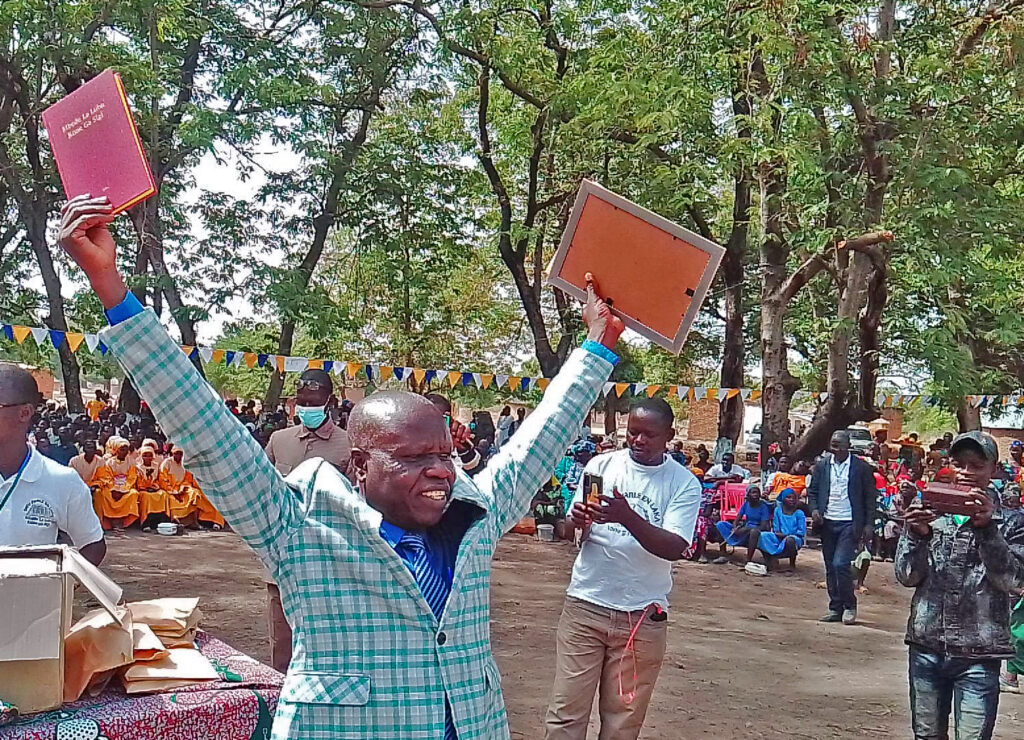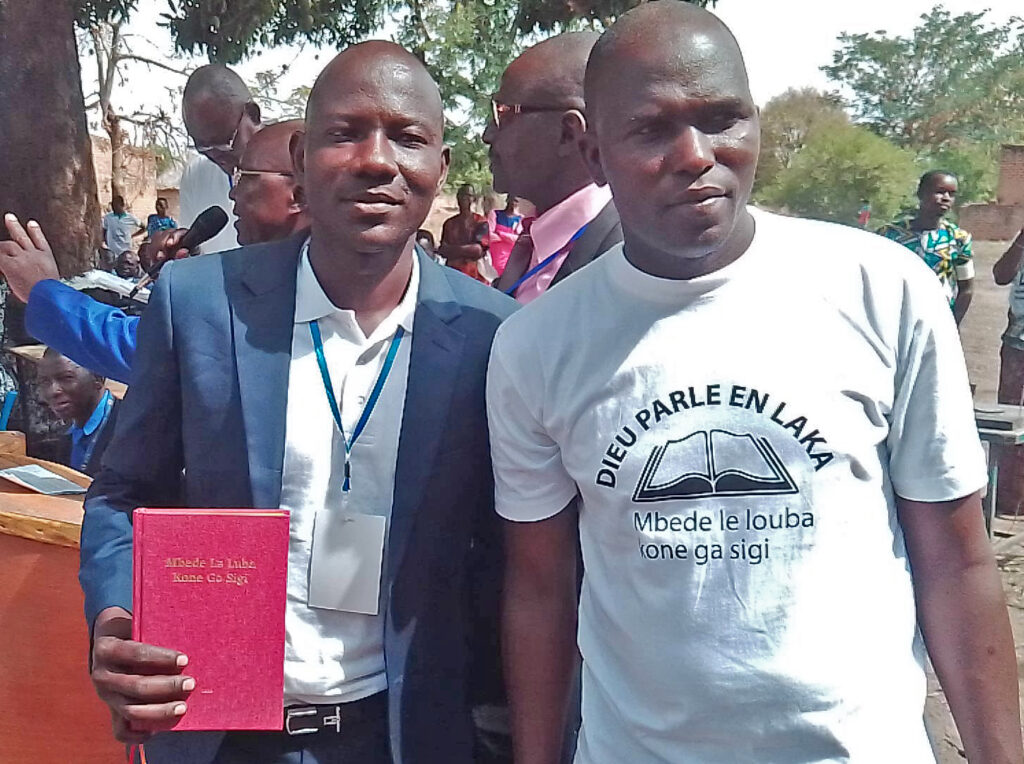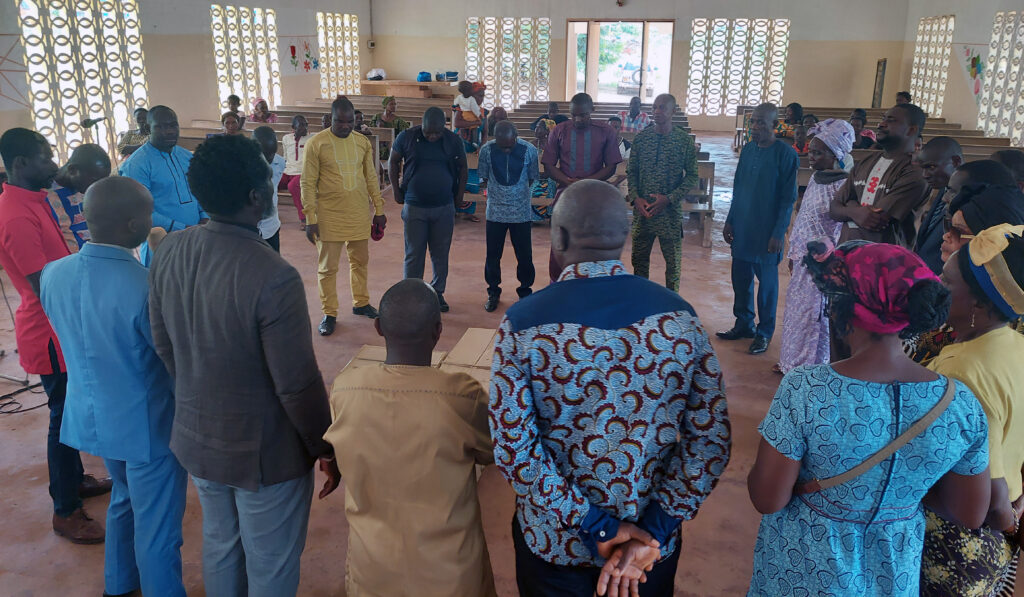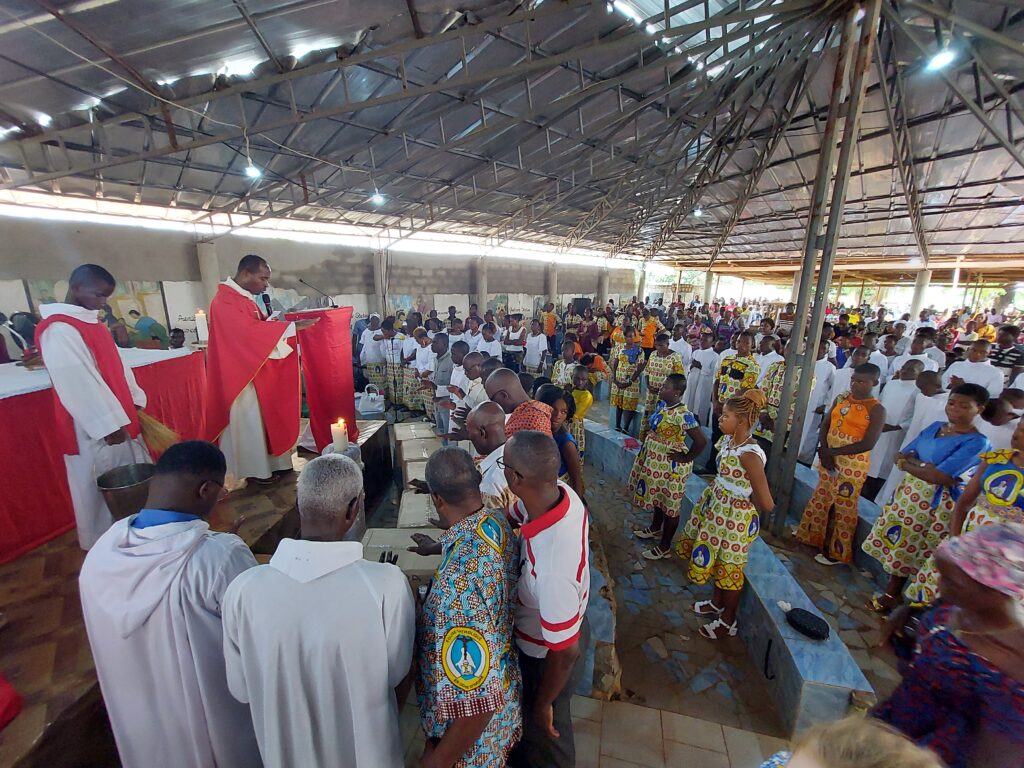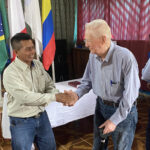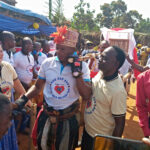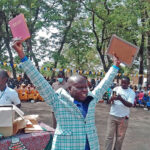Chaos, Challenges and Peace
Dennis Freeland, who serves with SIL Cameroon Aviation, had a special assignment: He transported some special visitors from Bangui, Central African Republic (CAR), to the town of Bossangoa to attend the dedication of the Gbeya New Testament, a long-awaited celebration, on Saturday, March 12, 2022. Several days later, he transported some other visitors to the town of Paoua for the dedication of the Kaba New Testament.
It had been a long road to get to this point. The Gbeya and Kaba New Testaments are two of three recently completed CAR translation projects that began many years ago. Along with many Central African translators, several different missionary families had worked on them periodically, with instability causing interruptions and evacuations over time. The projects were finally carried to completion by translation teams from ACATBA, the national Bible translation organization and a Wycliffe organization.
Unfortunately, in planning travel arrangements for special guests to attend the two dedications, neither of SIL-CAR’s transport options—a UN flight or a chartered commercial operator—had worked out. Elizabeth Marti, director of SIL-CAR, along with visitors Judith and Will Sawers and Cami and Larry Robbins—had been involved with the projects in various ways, so their attendance at these dedications was very important. That’s when SIL-CAR called SIL Cameroon’s Aviation department, hoping they could help get the visitors to the dedications. Dennis was available, along with their fixed-wing Cessna, so he accepted the assignment.
In Cameroon, preparations were complicated. For the flights to happen, they needed approval from both governments. And they had to inform the UN peace keepers in the relevant areas of CAR. On Thursday, the day before Dennis’ planned departure, both governments gave their approval within an hour of each other.
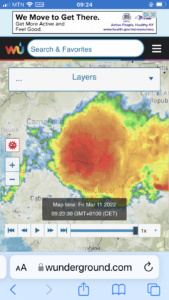
On Friday, with the airplane packed and ready to go, a large storm parked itself between Yaoundé and Bangui. Dennis sat and waited, hoping the storm would move on. Finally, after waiting into the afternoon, the storm had not moved or dissipated. So Dennis had to make a difficult phone call: He wouldn’t be able to make it that day. He offered to leave at sunrise on Saturday, meaning he would arrive two-and-a-half hours late for the ceremony. If all went well.
His Bangui passengers said that would be better than nothing, so they settled on “plan B.”
The next morning, with the satellite showing a few small storms along the way, Dennis took off and made it without any need to deviate from his course. Landing in Bangui, he was met with a very crowded parking area and had to weave his way through a maze of airplanes and park in a back corner. Then he had to wait there near the airplane until it could be refueled.
Meanwhile, his anxious passengers, who knew he had landed, were wondering where he was. After a long two-hour wait for fuel and formalities, Dennis and his passengers finally left for the dedication—two hours after it was to have begun.
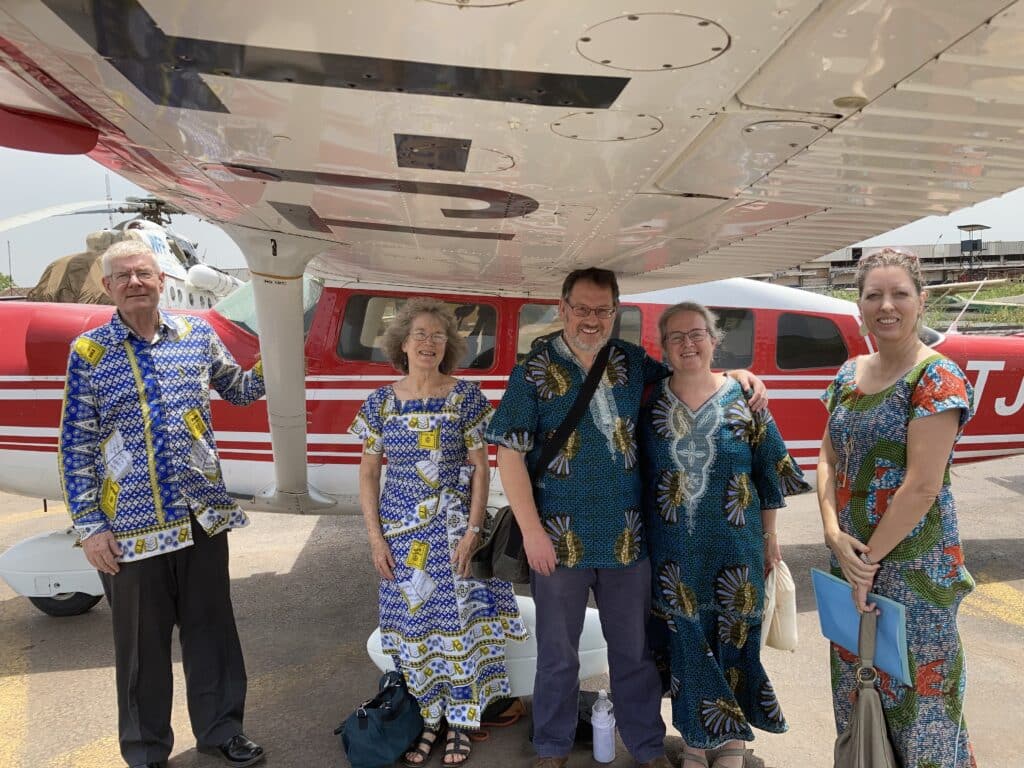
Leaving Bangui, they had good weather and smooth air, but as they flew north the visibility got worse. Dennis realized he wasn’t flying through the usual cloud cover but had unexpectedly encountered a harmattan, a dust cloud that blows down from the Sahara Desert. After dealing with the stress of the storms that threatened between Yaoundé and Bangui, now he had to deal with poor visibility. Thankfully, his GPS guided him straight to the runway, and he landed safely after his second approach.
There waiting for them were two trucks, one of which said “Gift from JAARS” in French. They quickly whisked his passengers away to the ceremony. Concerned about leaving the airplane unattended, Dennis remained with it and hung out with twenty or so friendly young boys. They tried to teach him some Gbeya, and he explained why his passengers were there, how airplanes work and taught them some English.
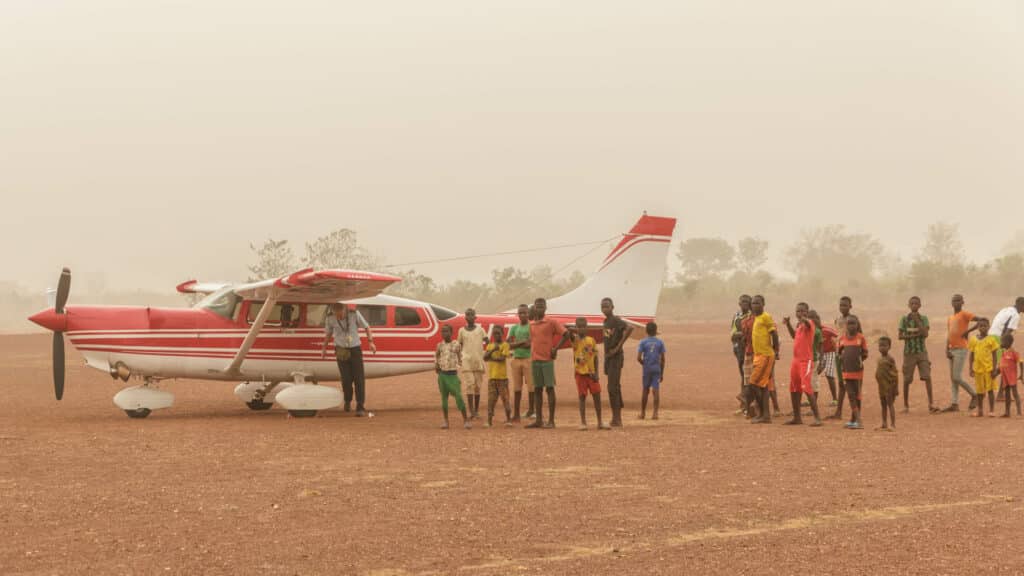
Four hours later it was time to head back to Bangui so they could arrive before dark.
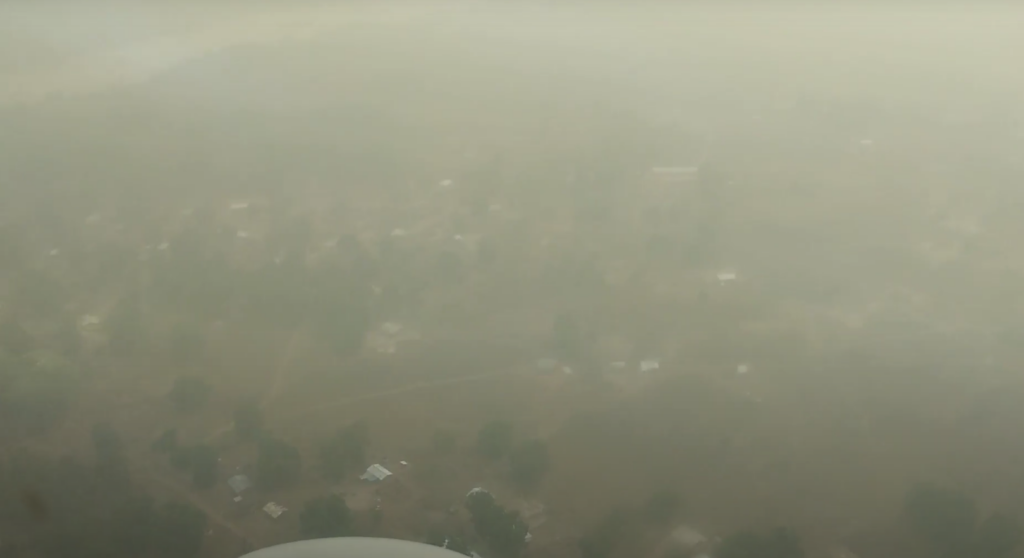
Within about 20 minutes, Dennis flew out of the harmattan, and the rest of the return flight to Bangui was calm and beautiful. When they landed at the airport, it was calm, unlike the myriad of activity that had been there in the morning.
Dennis said, “It seemed a fitting picture: The spiritual battle to get the New Testament translated symbolized by the chaos and challenges [I met] getting to the dedication. After the dedication there is the peace that comes from having God’s Word. In a way this was symbolized by the [calm] flight back to Bangui and getting through the airport without any hassles.”
But Dennis’ assignment wasn’t complete. There was another dedication coming the following week. Read about it in our next issue of Centerline.
Information for this article shared by Dennis Freeland and Judith Sawers






























































